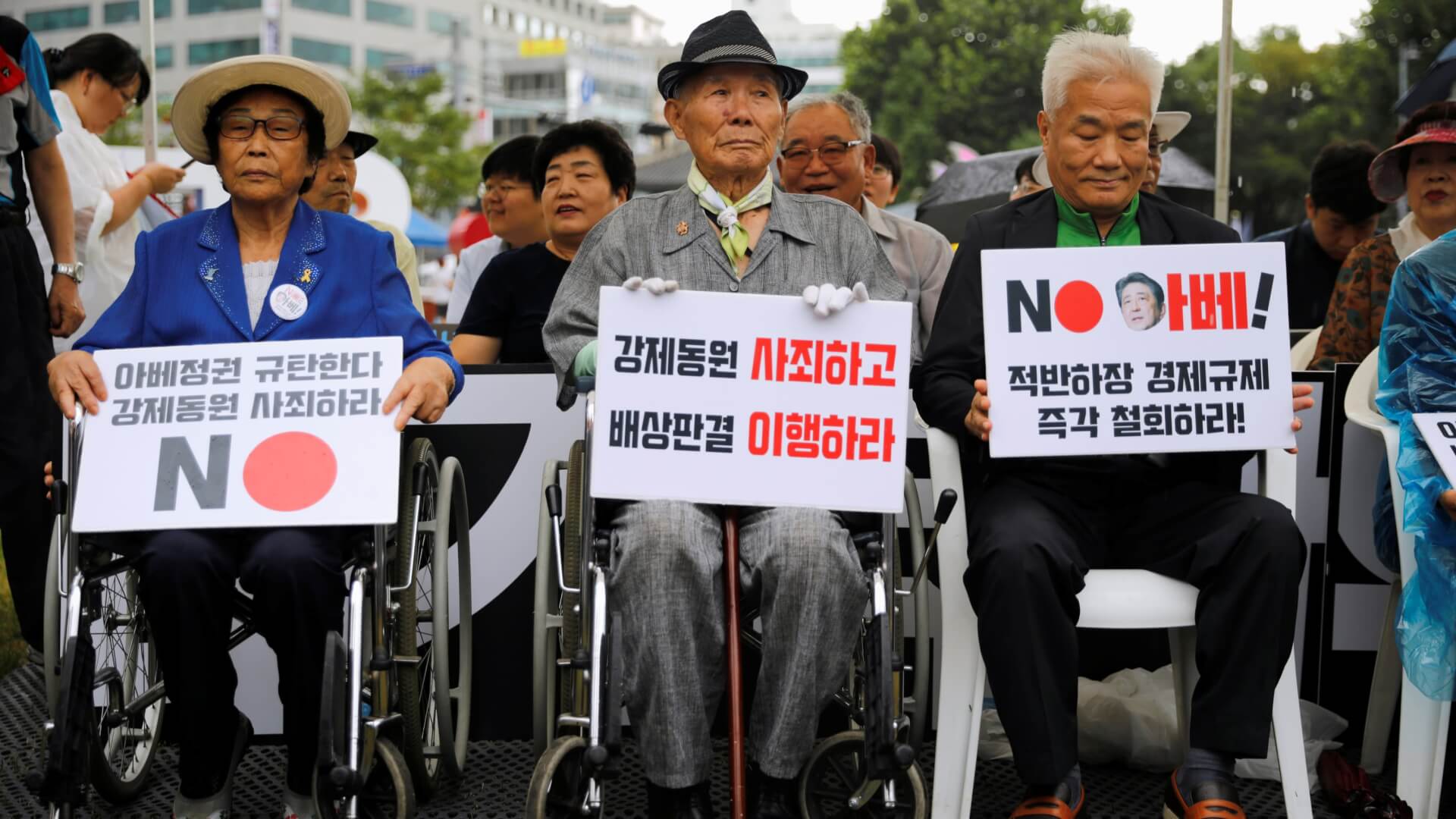Earlier this week, a South Korean court began proceedings to liquidate assets seized from Japan’s Nippon Steel Corp, which had refused to comply with a Supreme Court decision to award $8,400 each to four former World War II workers. In 2018, South Korea’s Supreme Court ordered Japanese companies Mitsubishi and Nippon to “compensate South Koreans forced to work in its factories” during Japanese colonial rule.
South Korean victims of wartime labour conscription sued Japanese companies in the 1990s. However, Japanese courts ruled in favour of the companies, leading the victims to take their case to South Korean courts instead.
The fresh set of court proceedings against Nippon are flaring up tensions between the two states. Japan has maintained that the South Korean court ruling is a “violation of international law” because it counters the 1965 bilateral agreement signed between the countries in 1965. According to the treaty, Japan paid $300 million in grants and $200 million in low-interest loans on the understanding that all of South Korea’s “claims were settled completely and finally”. However, South Korea’s Supreme Court ruled that agreements such as those signed in 1965 do not “impede individual victims’ rights to seek redress”. Therefore, if Japanese companies operating in South Korea do not pay the said compensation, the local courts can seize the company’s assets in South Korea. More than a dozen such cases are pending in South Korean courts and could impact about 70 Japanese companies.
In response to the 2018 South Korean Supreme Court ruling, Japan retaliated by removing the former from its “white list” of trusted trade partners and imposed strict regulations on Japanese exports of crucial materials used in semiconductors to South Korea.
Reports have now emerged that Japan is considering various measures to counter the Daegu District Court’s plan to liquidate Nippon Steel’s assets. These measures include imposing additional tariffs on South Korean products, stricter controls for issuing visas to South Koreans, and even recalling Japanese Ambassador Koji Tomita from Seoul. Some reports speculate that Japan may approach the International Court of Justice (ICJ) or the World Bank’s International Center for Settlement of Investment Disputes (ICSID). Japan’s Chief Cabinet Secretary Yoshihide Suga said “all options” will be considered. Nippon Steel has maintained that it will appeal the South Korean court’s decision, delaying the liquidation process.
A new pair of statues depicting a man kneeling before “comfort women” (a euphemism for those forced to work in Japanese military brothels during World War II) has furthered diplomatic tensions between Seoul and Tokyo. Japan has questioned if “the male figure represents the Japanese Prime Minister”. In 2015, the two countries sought to settle the dispute over sexual slavery, announcing a “final and irreversible” agreement. As part of the deal, Prime Minister Abe issued an apology and released $8 million for a compensation fund. Many South Koreans did not accept the agreement, and the victims even refused the money as a protest. In fact, incumbent South Korean President Moon Jae-in shut down the fund in 2018, reigniting tensions.
It is unlikely that the dispute between the two states will end any time soon, as both Prime Minister Abe and President Moon refuse to back down. According to Daniel Roh, CEO of Seoul-based consultancy firm Asia Risk Monitor the wartime issues can only be resolved with a change in leadership in both Tokyo and Seoul.
Japan-South Korea Feud Reignites Over World War II Compensation
The two states are disputing wartime labour issues.
August 6, 2020

Lee Choon-shik, center, was among those forced into wartime labor during Japan's colonial period. SOURCE: REUTERS
